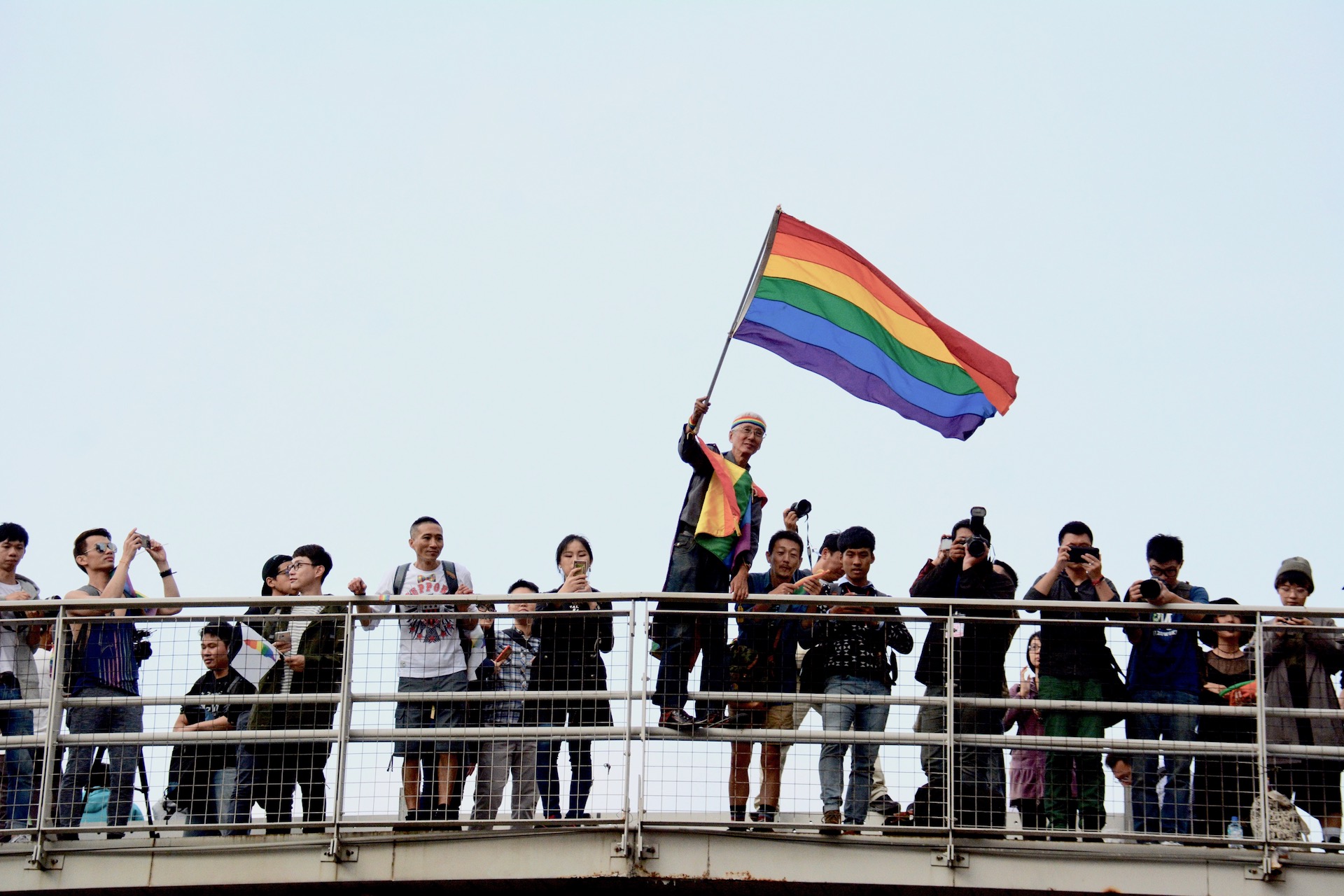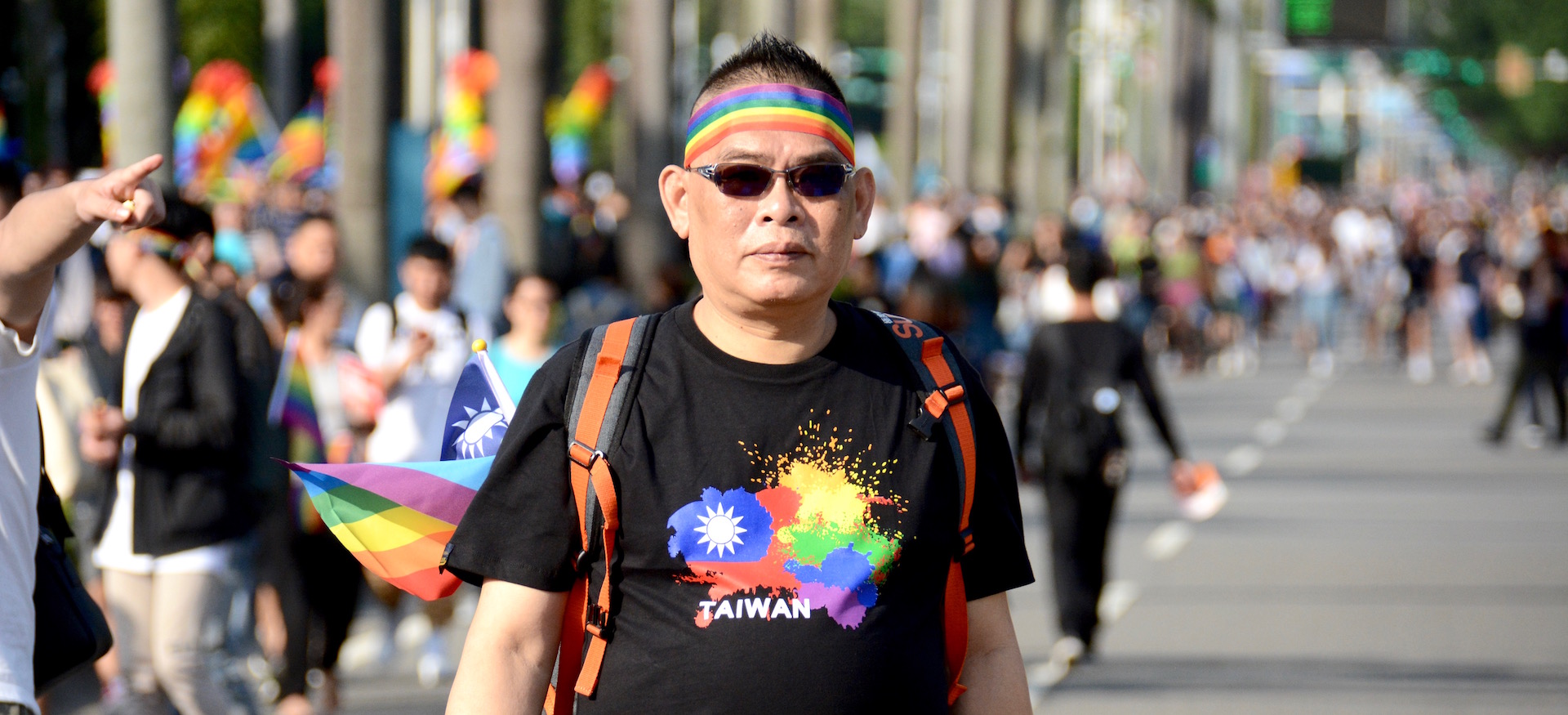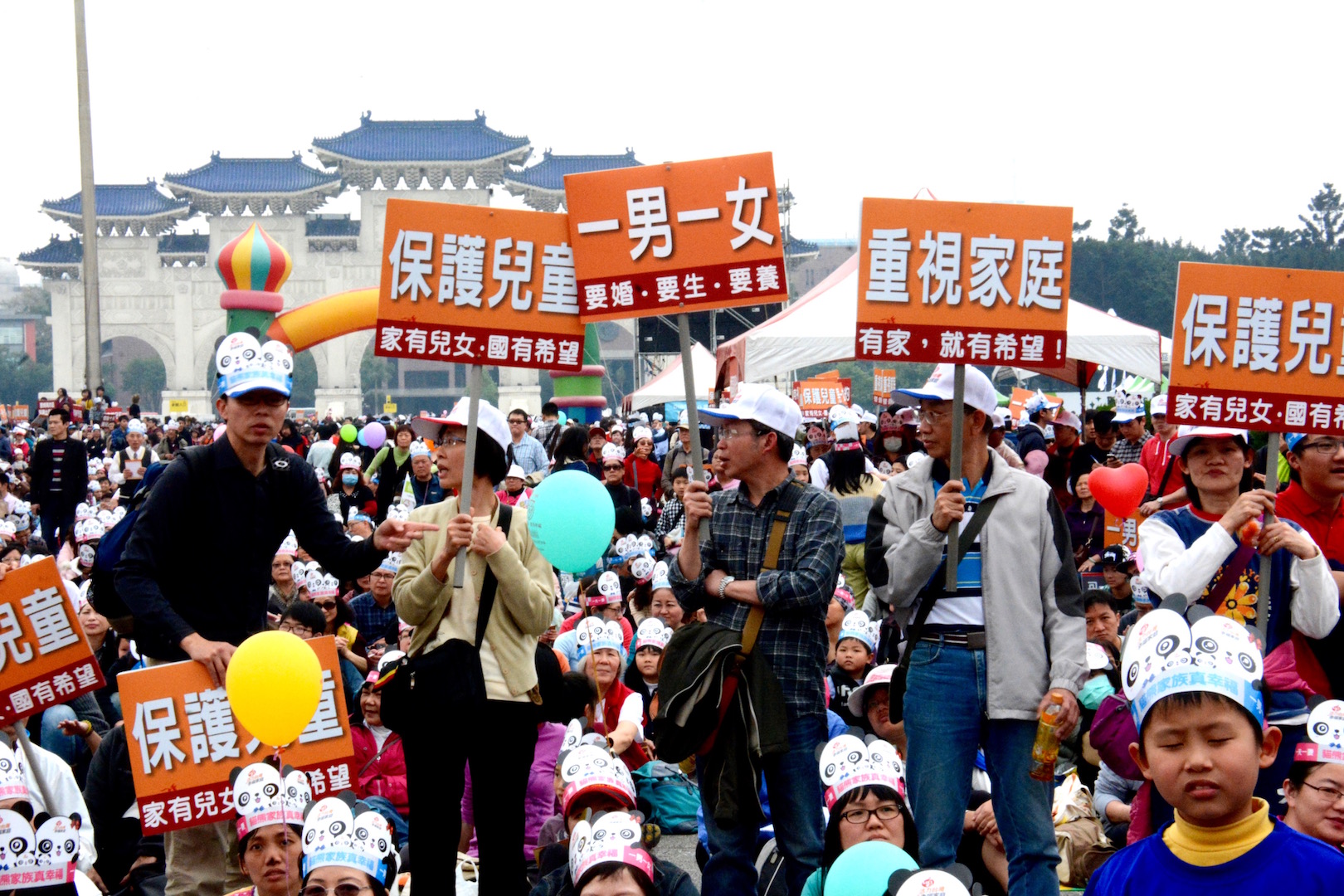The legalization of same-sex marriage in Taiwan should be viewed not just as a culmination of years of advocacy efforts and legal battles, but also as the beginning of hope for broader LGBT acceptance.
On May 17, 2019, Taiwan’s legislature became the first in Asia to legalize same-sex marriage. Two years ago, Taiwan’s Constitutional Court declared that the existing civil code limiting marriage to heterosexual partners was unconstitutional, giving the legislature a two-year deadline to pass legislation legalizing same-sex marriages. Meanwhile, organized conservative opposition led to noticeable shifts in Taiwanese support for the issue. Majorities supported allowing gays and lesbians to marry, as seen for example in 2012 and 2015 surveys by the Taiwan Social Change Survey (TSCS). However, organized conservative opposition to the court decision seems to have swayed a considerable segment of the population, since a series of anti-LGBT referenda in November 2018, including ones opposing same-sex marriage, all passed with clear majorities.
We should be careful in framing Taiwan’s progressiveness in light of this legalization. As the November referenda suggest, legalization has not won over the hearts and minds of a significant section of the Taiwanese public. Even among those who may be supportive of same-sex marriage in general, this does not necessarily equate to LGBT tolerance in their own communities or families. For example, our survey research in November suggests that across the political spectrum, Taiwanese claimed they were less likely to support their child coming out of the closest compared to others in their community, their friends or their own siblings. Even the same-sex marriage legislation itself demonstrates a continued failure to view such marriages as equal, since the law allows a partner to adopt the other’s biological children, but does not allow for the adoption of non-biological children. Same-sex couples in international relationships also face difficulties if one of the partners is from a country that does not recognize same-sex marriage.
Part of the tolerance equation in Taiwan is likely a function of exposure to members of the LGBT community. Studies show that contact with a minority group, especially over time, tends to lead to less negative if not more positive views of that minority group. Historically, many Taiwanese may not personally have known a member of the LGBT community. This is in large part due to various cultural norms that minimize the number of “out” LGBT individuals, which compounds the problem of already limited contact. However, marriage legalization coupled with generational shifts in views should lead to broader exposure to Taiwan’s LGBT community and thus greater acceptance. More broadly, the legalization of same-sex marriage in Taiwan should be viewed not just as a culmination of years of advocacy efforts and legal battles, but also as the beginning of hope for broader LGBT acceptance.
The results highlight the continued challenge of moving from abstract notions of tolerance — for instance, a gay celebrity — to more concrete conceptions, especially in regards to one’s own family.
While most recent surveys in Taiwan have focused on direct questions about whether one views homosexuality as a sin or asked about support for same-sex marriage, we asked about levels of comfort. We were particularly interested in whether relational proximity to a Taiwanese homosexual influenced tolerance. In other words, would Taiwanese claim a higher comfort level when the homosexual in question was a coworker versus a friend or a family member? If cultural factors in Taiwan generate specific expectations out of family members — procreation, for example — then this should be evident in variation of comfort based on relational proximity.
To tackle the issues of public comfort with homosexuals and relational proximity, and to address the underlying progressiveness of Taiwan on LGBT acceptance, we conducted an experimental survey through PollcracyLab at National Chengchi University in April this year. Respondents were randomly assigned one of three prompts and then asked to evaluate the prompt on a five-point Likert scale (strongly disagree to strongly agree).
Version 1: I would feel comfortable working with a homosexual
Version 2: I would feel comfortable making friends with a homosexual
Version 3: I would feel comfortable with a family member that is a homosexual
The figure below presents the results, separated by whether or not respondents stated that they knew an LGBT Taiwanese person. Unsurprisingly, clear majorities of those who stated that they knew an LGBT Taiwanese person were comfortable under all three versions, with the version asking about making friends receiving the highest support. Among those who did not know an LGBT Taiwanese person, comfort peaked in Version 2 at only 32.56%, with only 12.5% stating they would feel comfortable with a family member that was homosexual. Unexpectedly, among both groups of respondents, making friends saw higher acceptance than having an LGBT coworker, despite friendship presumably being a more intimate relationship. Furthermore, regression analysis controlling for party identification, age, gender, education, income, traditional values, knowing an LGBT person, and religion identification still finds comfort is lowest when framed as a family member.

The results highlight the continued challenge of moving from abstract notions of tolerance — for instance, a gay celebrity — to more concrete conceptions, especially in regards to one’s own family. However, as media portrayals of Taiwan’s LGBT community increase and more are willing to come out, the evidence here suggests the proximal tolerance will also increase. In countries where same-sex marriage has been legal for years, public acceptance of same-sex couples is much higher. For instance, in the Netherlands, which in 2000 was the first country to legalize same-sex marriage, 86% of the population supports same-sex marriage. Therefore, if Taiwan’s same-sex marriage law remains in place, Taiwan’s tolerance is likely to rise noticeably over the next decade.
On the other hand, studies have also found that negative exposure to minority groups and media that reinforces negative stereotypes harms tolerance. With conservative Christian groups in Taiwan spreading fake information about same-sex couples, for instance that HIV-positive foreigners would marry Taiwanese to take advantage of Taiwan’s health care, the possibility of negative media exposure to the LGBT community is likely for many Taiwanese. In fact, it is possible that the influence of anti-LGBT media helped swing referendum votes last November, as tolerance for LGBT Taiwanese was higher at the time of the Constitutional Court ruling than during the referendum.
Overall, the primary lesson from this study is that Taiwanese view homosexuality differently based on proximity of relationship. Similar trends exist in South Korea, suggesting that such a result is not entirely surprising. However, in the future, advocates and politicians on both sides of the issue should consider how to account for this information in campaigns. As the 2020 election in Taiwan approaches, same-sex marriage has the potential to influence many voters, just as it did in the 2018 local elections, making this issue critical for all involved in those elections.
You might also like
More from Society & Culture
Media and Free Expression in Taiwan Are Under Attack: What Can be Done?
How can we avoid the imposition of a blanket silence which can only empower our enemies and damage our democracy? …
What Makes the Nation?
What sets Taiwan apart, and what gives it its value, is what it stands for — its national narrative, the …









